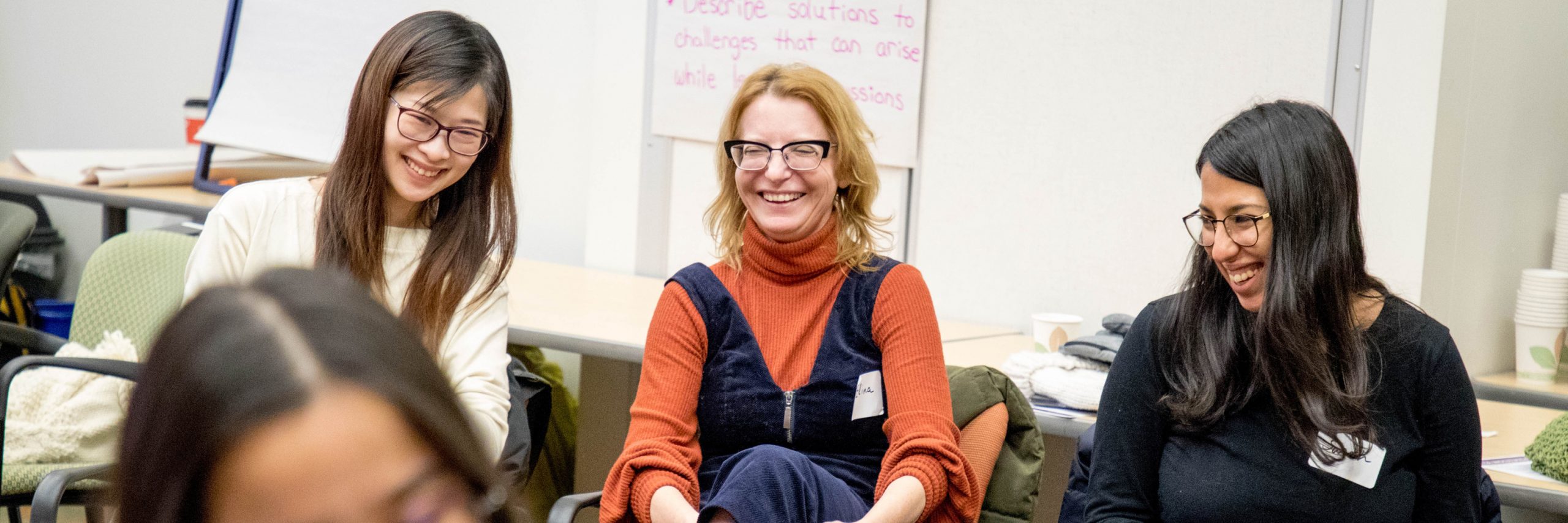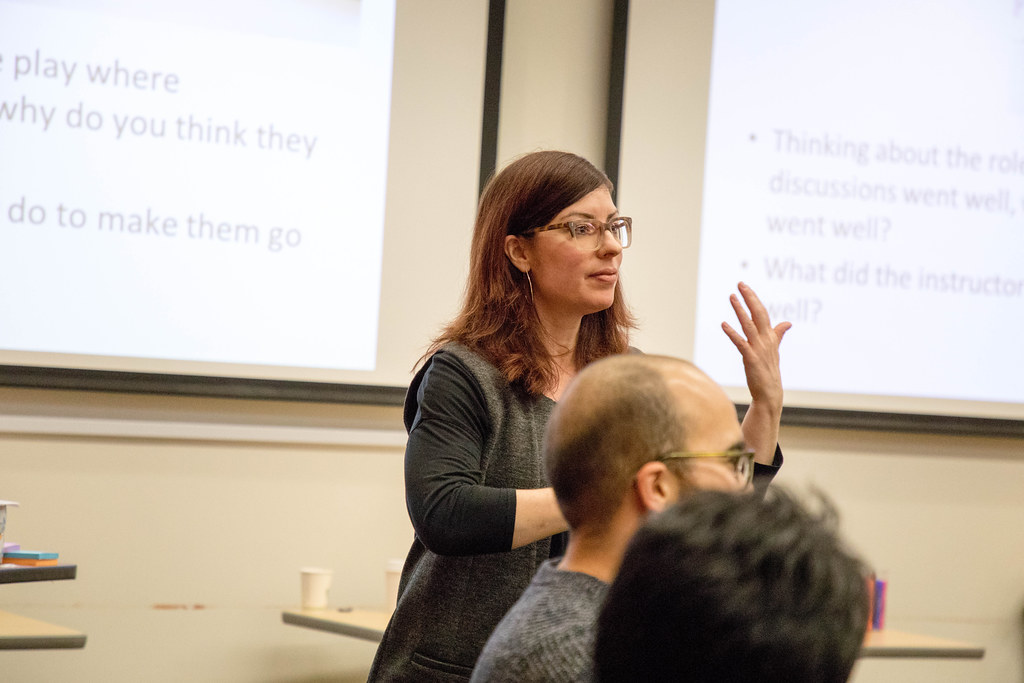In January, graduate and undergraduate teaching assistants (TAs) and those aspiring to become TAs gathered at the Centre for Teaching, Learning and Technology (CTLT) for a four-day workshop series called the TA Institute from January 13 to 16. Unfortunately, the Institute was cut short by one day due to the extreme weather that caused the University of British Columbia to be closed on Wednesday, January 15, but these sessions will be rescheduled at a later date.
The Institute is essential for those who are just starting their TA position at UBC. It is also an opportunity for students interested in teaching to get their feet wet and understand the roles and responsibilities of a TA. This year’s themes covered inclusive, student-centred learning; teaching career preparations; teaching fundamentals; transformative growth in learning; and interdisciplinary and experiential learning.
The TA Institute also subtly integrated the theme of wellness throughout most of the sessions. It encouraged graduate students to advocate for their wellness and to understand the power of their voice.
The goal of the Institute is to provide graduate students with a better understanding of what their role is. For Jennifer Brown, the lead facilitator of the Graduate Student Facilitator Team at the CTLT and the organizer of the TA Institute, “Ideally, TAs should have an opportunity to engage with the learners of their course, to have a little bit of autonomy, to teach and facilitate learning outside of just marking.” In the TA Institute, “they should be able to gain some teaching experience and some professional development by learning how to teach.”
Brown also mentioned that the Institute is a training opportunity for what graduate students might experience in the future. She stated, “It’s important to be trained not only in academia but also on presenting your research to others, and being able to shift from just lecturing to engaging [students].” At the TA Institute, “graduate students are offered a wide range of educational leadership opportunities [that] can open their eyes to something outside of academia. The knowledge from these sessions is transferrable to other areas, into their research, and their future. They will also learn that being able to create a space that is inclusive, [which is] is rapidly becoming more important.”
The TA Institute is essentially a “nice way to broaden our graduate students’ horizons” and an opportunity for them to gain an interest in teaching, says Brown.
Each day within the Institute had three sessions. On Monday, January 13, one of the TA Institute’s most attended session was Leading Discussions with Students… When Should I? How Should I? Facilitated by PhD candidates Andrea Johnson, from the School of Social Work, and Cassandra Elphinstone, from the Department of Botany.
This session aimed to articulate the rationale for including a discussion in a lesson, align a specific discussion technique with a learning objective of the lesson, and describe solutions to challenges that arise while leading discussions.
Most of the participants discovered through a group discussion that they were dealing with similar issues of facing a lack of engagement within their class discussions. Through different exercises in the session, they found ways to improve the engagement of students within their classroom discussions, by navigating through some plausible positive and negative outcomes that appear with different methods.
On Tuesday, January 14, the session Designing High-Impact Learning Experiences, was facilitated by Shaya Golparian, educational developer, CTLT, and Joseph Topornycky, manager, graduate student programs, CTLT.
The key theme of the session was learning from experience. The participants were encouraged to look particularly at how learning from a previous experience could cause a person to be motivated to do something later. This was related to how the participant’s past experiences teaching could help them develop different teaching methods and practices that would help improve their performance in the classroom.
On the last day of the Institute, Dr. Shadi Mehrabi, a community-engaged learning officer, Centre for Community Engaged Learning (CCEL), and PhD students Natalie Westwood, from the Department Zoology; and Emily Truong-Cheung, from the Department of Sociology, facilitated Supporting Community Engaged Learning Course Assessment.
Dr. Mehrabi explained the concept of community-engaged learning and how it is involved and enriches the external community. It allows the voices of others and their needs to be heard and ensures that everyone is involved in the process of development. In community-engaged learning courses, there are four different types of stakeholders: student, faculty, community, and institution. Hence, students learn through projects that are made between communities and can become more engaged. Students are encouraged to see the importance of the product of these projects and how it helps the community.
The session introduced the concept of community-engaged learning to the participants and broadened their perspective on different teaching techniques. Participants were notified that if they were interested in the alternative teaching technique, CCEL would facilitate finding a community partner for instructors. CCEL also aids the instructors to fully utilize the capacity of their students in the right away.
Once students fulfill the theme requirements, they receive a letter of completion, which graduate students can include in their CVs and teaching portfolios as evidence of the skills they learned and the value of those skills.
This year the TA Institute partnered with several units outside of the CTLT, as this allowed students to become acquainted with resources open to them throughout the university. This year also brought the first partnership event between the CTLT and the Sexual Violence Prevention and Response Office.


